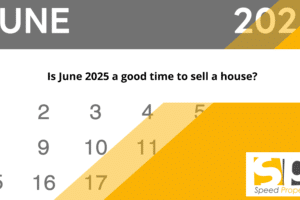The Ultimate Guide to Selling a Buy-to-Let Property
The Ultimate Guide to Selling a Buy-to-Let Property
Updated with the 2022 Autumn Statement’s figures
So you want to sell your buy-to-let property? Whether it’s a tenanted investment or a vacant property, there are a few things you need to know in order to get the best price and sell as quickly as possible. In this article, we’ll walk you through the entire process, from start to finish. We’ll also give you some tips on how to prepare your property for sale, and how to market it effectively. Read on for all the information you need!
 Selling as tenanted (in situ) or vacant?
Selling as tenanted (in situ) or vacant?
The first and possibly most important thing to ask is what’s better if you’re looking to sell: an empty property or one with sitting tenants?
Selling a property with tenants
Selling a property with tenants in situ means that generally, only other landlords will be looking to purchase the property, this limits the pool of buyers to landlords and cash buyers who will buy portfolio properties.
You will also need to provide your tenants with notice that you are planning to sell the property, typically two months. This can cause problems like the current tenant moving out or causing problems. They will be legally entitled to stay so it can be problematic if you wanted them to move out so you can sell a vacant property.
Selling a vacant property
Selling a property that is vacant obviously means it will sell a lot quicker, and you’re not relying on the current tenants to look after the property and keep it in a good state of repair. You’re also not legally required to give the tenants any notice, so you can sell as soon as you find a buyer.
The main downside of selling vacant is that your property will be more exposed to vandalism and break-ins, so you’ll need to make sure it’s properly secured. You’ll also need to factor in the cost of any necessary repairs or renovations that need to be carried out before putting it on the market. You will also not be earning any rental income whilst the property is empty.
So, what’s the best way to sell a buy-to-let property? The answer really depends on your individual circumstances. If you’re looking for a quick sale, then selling vacant is probably the best option. If you’re not in a rush and you’re happy for your tenants to stay on, then selling with tenants in situ might be the way to go.
 Preparing your property for sale
Preparing your property for sale
Once you’ve decided whether you’re going to sell as tenanted or vacant, it’s time to start preparing your property for sale. If you’re selling with tenants in situ, there’s not much you need to do in terms of preparation, as the tenants will be taking care of that. However, if you’re selling vacant, there are a few things you’ll need to do in order to make sure your property is presentable and attractive to buyers.
First of all, you’ll need to make sure any necessary repairs or renovations have been carried out. This might include things like fixing any broken windows or tiles, repainting walls, and deep cleaning the property from top to bottom. Once that’s all done, it’s time to start thinking about staging.
Staging your property
Staging property is uncommon in the UK but it can be a great way of making your property look as appealing as possible to potential buyers. This might include things like furnishing empty rooms, dressing up bare windows with curtains or blinds, and adding some homely touches like flowers or scented candles. The goal is to make the property feel warm and inviting so that buyers can imagine themselves living there.
It’s not essential and doesn’t work for every property but it can be a way to make a property stand out which can be helpful in a downward market.
What capital gains tax will I have to pay when selling a buy-to-let property?
Buy-to-let properties are subject to (CGT) pay capital gains tax.
Everyone has a tax-free allowance of up to £12,300 per year (between 2022/23) so you only need to pay tax above this on the profits of the house and this can be further off-set with any work that has been carried out on the property.
The tax-free amount will be cut cut from £12,300 to £6000 from April 2023 and £3,000 from April 2024.
Capital gains are seen as income so it should be noted that it’s possible that selling a property might also put you into a higher tax bracket band which means the tax implications can be tricky to navigate. Basic rate taxpayer
If you’re a basic rate taxpayer and your income is less than or equal to £50,000, the capital gain tax rate is 18%. Higher-rate taxpayers with an incomes greater than £50,001 pay 28%. For example: if you bought a rental property ten years ago for £100,000 and sold it today for £150,000; then your capital gain would be taxed at £ 50,000.
it’s a good reason to use a specialist firm that knows the system if you are looking to sell.
As we mentioned you can try to offset some costs via work carried (e.g. new kitchen) out but you further offset the costs via stamp-duty costs, any conveyancing legal costs and further fees when you bought the property like the fee an estate agent will charge.
Mortgage implications when selling a buy to let
When you sell a buy-to-let property that has a mortgage on it, you will need to pay off the mortgage with the proceeds of the sale. If you have made any capital gains on the property, this will also be taken into account when calculating how much tax you owe. However, if you have held the property for more than ten years, you may be eligible for a capital gains tax exemption.
It’s also worth noting that if you sell a property that is subject to a mortgage, the lender may require you to pay an early repayment fee. This is because you will be paying off the mortgage earlier than originally agreed. The amount of the fee will depend on your mortgage terms and conditions, but it is typically between two and five per cent of the outstanding mortgage balance.
Selling a buy-to-let property can be a complex process, so it’s important to get professional advice from a specialist firm before proceeding. They will be able to guide you through the process and help you minimise any costs or taxes payable.
When should I sell my buy-to-let property?
The answer to this question depends on a number of factors, including the current market conditions, your personal circumstances, and your financial goals.
If you’re looking to sell in the near future, it’s important to keep an eye on the market value and watch for any changes that might impact your decision. For example, if house prices in your area are starting to fall, it might be a good idea to sell sooner rather than later. On the other hand, if property prices are rising and you’re looking to maximise your profits, you might want to wait a little longer. This can be easier if the mortgage interest payments are covered by the rent.
Your personal circumstances will also play a role in deciding when to sell. For example, if you need to sell for personal reasons (e.g. moving house, getting divorced, etc.), it might not be possible to wait for the perfect market conditions. In these cases, it’s often best to sell as soon as possible and take whatever profits you can get. Just don’t forget to pay CGT!
Finally, your financial goals will also influence your decision. If you’re looking to sell in order to retire or pay off your mortgage on your main residence, you might be less concerned about maximising profits and more focused on getting the best possible price for your property. On the other hand, if you’re looking to sell in order to reinvest the proceeds into another buy-to-let property, you might be more interested in waiting for the perfect market conditions.
The bottom line is that there is no right or wrong answer when it comes to deciding when to sell a buy-to-let property. It’s important to weigh up all of the factors mentioned above and make a decision that’s right for you.
If you’re thinking about selling your buy-to-let property, we recommend speaking to a specialist firm for advice. They will be able to help you understand the process and make sure you get the best possible price for your property.
Selling a buy-to-let property can be a complex process, so it’s important to get professional advice from a specialist firm before proceeding. They will be able to guide you through the process and help you minimise any costs or taxes payable.
Tenant concerns
We should note that if you do plan to sell a buy-to-let property if you have a lot of viewings you it should be noted tenants are entitled to ‘quiet enjoyment‘. Tenants can also get very worried if you are planning to sell and might move out though they’ll need to give the legal notice as specified in the contracts. If there is a break clause in the contract they might utilise this when you sell so timing can be key.
If you are planning on selling with a tenant in situ you should talk to them and be honest, explain why you are selling and you could even give them the option to buy the property if they have the funds.
Mortgage
When you sell a buy-to-let property that has a mortgage, the first thing you need to do is find out how much is left to pay on the mortgage. You’ll need to have this information so that you can factor it into any offers you receive.
If there’s still money owed on the mortgage, the buyer will need to take over the payments. This is known as ‘assumption of liability. The buyer will need to be approved by the mortgage lender before they can assume responsibility for the mortgage.
What if…
When in doubt do not hesitate and contact us! SpeedPropertyBuyers’ experienced consultants will provide you with a free and non-obligatory quote so you can make an informed decision.









